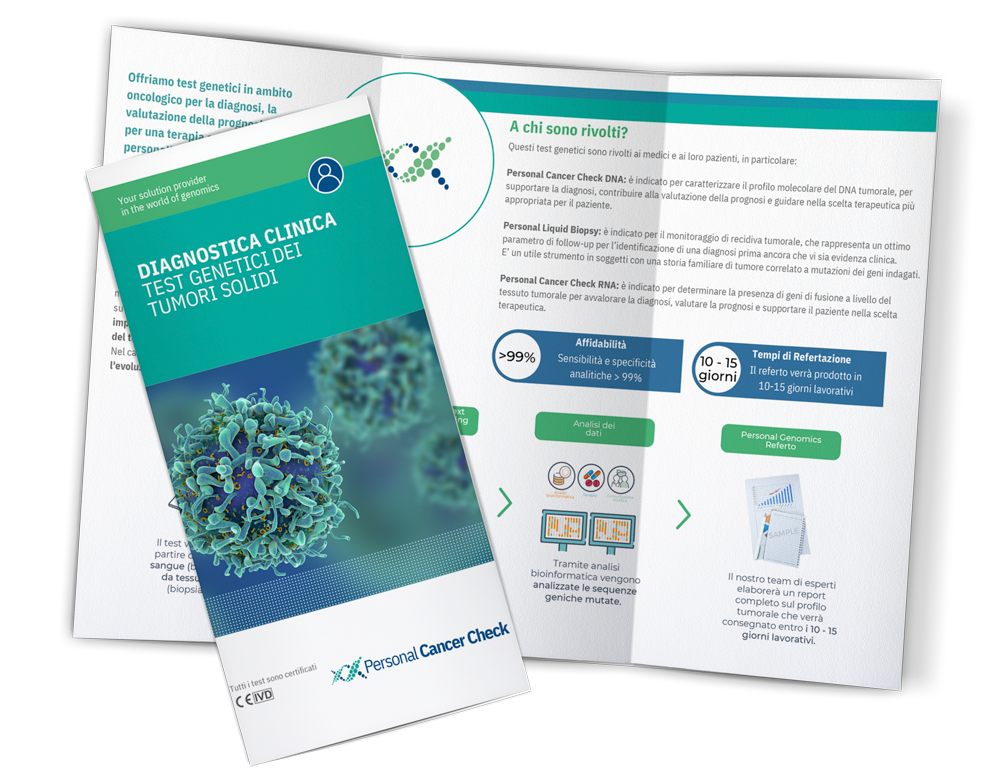Genetic testing of solid tumors
We offer genetic tests in the oncology field for diagnosis, prognosis assessment and for an increasingly personalized therapy.
Cancer is a pathological condition characterized by uncontrolled cell growth due to the presence of alterations in some genes that perform important cellular functions. The cells that present these alterations, called mutations, are no longer able to respond to control signals and proliferate irregularly, infiltrating organs and tissues of the body and altering their structure and functioning. Mutations can be of different types and derive from random errors that occur during DNA replication or from injuries due to exposure to physical, chemical or biological agents.
All tests are CE-IVD certified


Why take the tests
These tests allow you to obtain information on numerous gene regions with a simultaneous analysis carried out on a single sample and allow you to provide important information on the genetic heterogeneity of the tumor. In the case of liquid biopsy, it is also possible to evaluate the evolution of the tumor over time.

What tests detect
Personal Liquid Biopsy and Personal Cancer Check DNA allow to identify the mutational hotspot regions of the 16 tumor-specific genes most involved in tumor genesis. Personal Cancer Check RNA, on the other hand, detects the presence of fusion genes in tumor tissue of specific RNA transcribed from 10 tumor-specific genes.

Reliability
The tests have a sensitivity and specificity higher than 99%, each clinically significant variant is validated with a second method, in compliance with the most stringent guidelines of medical genetics.

Who the tests are for
These genetic tests are aimed at doctors and their patients, in particular:
Personal Cancer Check DNA
It is indicated to characterize the molecular profile of tumor DNA, to support the diagnosis, to contribute to the evaluation of prognosis and to guide the most appropriate therapeutic choice for the patient.
Personal Liquid Biopsy
It is indicated for the monitoring of tumor recurrence, which is an excellent follow-up parameter for identifying a diagnosis, even before there is clinical evidence. It is a useful tool in subjects with a family history of cancer related to mutations of the investigated genes.
Personal Cancer Check RNA
It is indicated for determining the presence of fusion genes at the tumor tissue level to validate the diagnosis, evaluate the prognosis and support the patient in the therapeutic choice.

